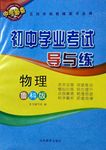题目内容
阅读理解Li Lu’ou thought he did the right thing by calling 110 when he saw his two classmates in trouble on the corner of a dark street.
Li and his classmates from No.2 Middle School affiliated to Beijing Normal University spent this year’s Valentine’s Day(情人节) selling roses on the street. As night approached, they cycled back with over 200 yuan in their pockets.
Suddenly, a gang of robbers jumped out at them. The five robbers were tall and strong, so Li ran away to call the police. He thought it would be the most practical thing to do and he was right. His classmates returned safe and sound.
So, what would you have done in Li’s situation? Would you have got off your bike and fought the robbers to rescue your friends?
A new Beijing student code(守则) does not encourage you to risk(冒险) your life to help them.
The new code was introduced to more than 1.7 million primary and middle school students in the city at the start of the new term.
It has cut words which might encourage youngsters to risk their lives for others in dangerous situations. Gone are the old calls, which had been in place since 1987, for students to “fight criminals(犯罪分子) courageously” and “sacrifice themselves to save other”. Children’s heroic acts usually left them injured or even dead because they failed to fully foresee the dangers of their actions.
A well-known example was Lai Ning, who was listed among the “top 10 model young pioneers” in 1989 after he lost his life trying to put out a fire at the age of 14.
The deaths connected to teenagers “heroic acts” started a national wide debate(争论) about the protection of youngsters.
Wei Lusheng, a parent in Beijing, said schools must first teach children how to protect themselves, before learning from heroes.
But educators thought the spirit of courage should not be thrown away in the new student code.
“Getting rid of the ‘fight criminals courageously’ words do not mean we deny the spirit of ‘fearlessness’ and ‘readiness’ to help others”, said Li Jing, an official in Beijing. “But, we should be more rational(理智的) about the spirit of sacrifice.”
Li Lu’ou agreed. “Cherishing life is no reason to be a coward,” he said. “But you need to おmake sure you are able to offer help. For example, it would cause more trouble if I jumped into water to rescue someone drowning, but didn’t know how to swim. In that situation it’s better to call the police or an adult.”
1.Which is true about Li and his classmates?
A. They bought roses for each other on Valentine’s Day.
B. They called 110 immediately they were held up by a gang of robbers.
C. Li risked his life for his classmates in the dangerous situation.
D. Instead of fighting the robbers Li thought it right for him to call the police.
2.The new student code was introduced in Beijing because_____________.
A. students are facing more danger than they used to
B.the old student code didn’t include the spirit of courage
C.the old one didn’t tell students how to protect themselves while helping others in trouble
D.the old student code encouraged students to sacrifice themselves to save others
3.Which can be inferred about Lai Ning?
A. He was one of the top 10 model young pioneers in 1987.
B. If it weren’t him, the forest fire would not have been put out.
C. According to the new code, he shouldn’t have risked his life to put out the fire.
D. His deeds did not agree with what the old student code encouraged.
4.The underlined word “deny” in the second last paragraph means “_____________”.
A. agree with B.disagree with
C.connect with D.object to
5.According to the new student code which of the following statements is right?
A. There will be more criminals after the new student code was introduced.
B. The police in Beijing will have a more difficult time in keeping order.
C. The spirit of “fearlessness” and “readiness” to help others will be thrown away.
D. Teenagers are advised to make sure they are able to offer help when they want to.
解析:
| 1、本题为细节判断题。文章第一段已经交代清楚:Li Lu’ou thought he did the right thing
by calling 110 when he saw his two classmates in trouble on the corner of a
dark street.其中calling 110为关键词。
2、文章中“A new Beijing student code(守则) does not encourage you to risk(冒险) your life to help them.”一句为关键句。旧的《学生守则》鼓励学生勇敢地同犯罪分子作斗争,往往使自我保护能力较差的学生受到伤害。新的守则改正了旧守则中的不合理的部分。 3、本题为推理判断题。赖宁牺牲于扑灭山火的行动,并被评为全国十佳少先队员。当时的旧的《学生守则》大力提倡这种英雄行为。但是,新的守则不提倡这种牺牲以自己的生命为代价的行为,因此可以推断出在新的《学生守则》下,赖宁不会丧失生命。 4、本题为词义猜测题。deny的意思是“否定,拒绝相信”,和B项意思相近。 5、本题为推理判断题。文章最后一段“But you need make sure you are able to offer help.”一句,提供了解题思路。
|
提示:

 七星图书口算速算天天练系列答案
七星图书口算速算天天练系列答案 初中学业考试导与练系列答案
初中学业考试导与练系列答案
| |||||||||||||||||||||||||||||||||||||||||||||
| |||||||||||||||||||||||||||||||||||||||||||||
| |||||||||||||||||||||||||||||||||||||||||||||
